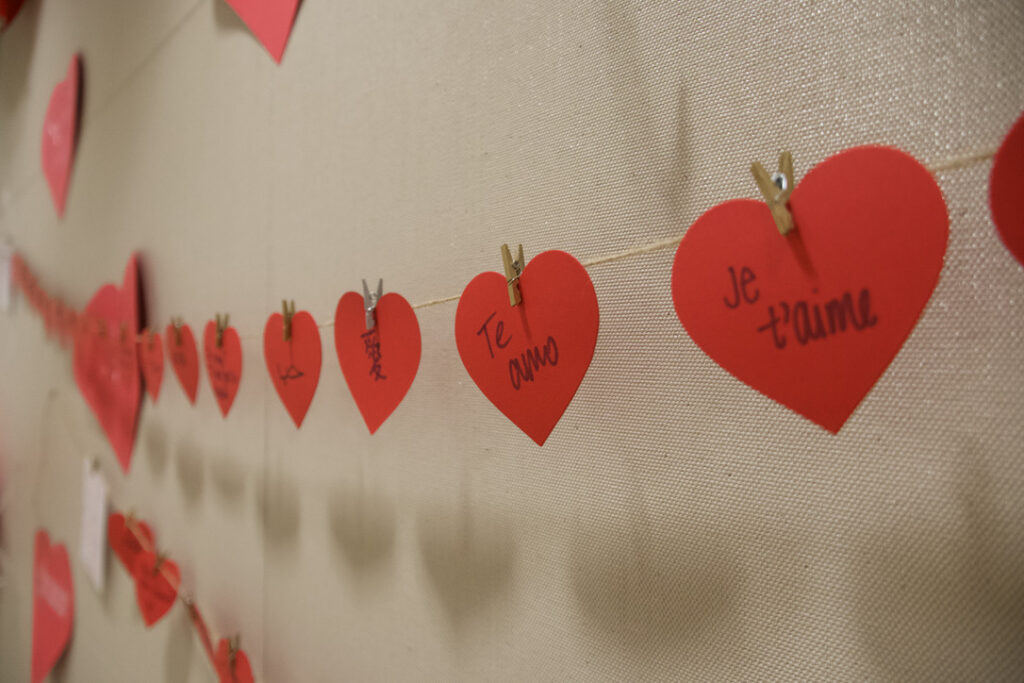Valentine’s Day sparks student thoughts about celebrating love amidst Hallmark pressures
4 min read
While one person’s Valentines day can have a fabulous turnout, others live in a stark reality. Abbey Magnet | The Weekly Ringer
by GRACE WAGNER
Staff Writer
Valentine’s Day comes and goes, filled with sugar highs and lonely lows, and many students have mixed feelings about this love-centered celebration—and rightfully so. As a traditionally couple-focused holiday, Valentine’s Day can feel pretty isolating. However, the issue with Valentine’s Day is the focus, as the familiar commercialization of the holiday and centralization of romantic love between significant others draw media attention and leave single individuals to buy ourselves our own chocolate. This leaves us questioning: How do we know love is real if it doesn’t come from a Hallmark card or an Instagram post?
The love/hate relationship around Valentine’s Day has been going steady for as long as I can remember, and the pressure to perform shallow acts of affection makes the version of Valentine’s Day that we know and hate feel so out of touch with what the holiday should really be all about. Is the love for Valentine’s Day justified, or is it just a means to break our poor, single hearts?
More than just one day
There are many things amiss with Valentine’s Day but many students reflected on some specific changes they would make regarding how we celebrate. Most commonly, students opined that love and affection should get more than just one day.
“I think love should be celebrated every day,” said freshman Mathew Cabrera.
And it’s not just love that students think should be celebrated every day, but their significant others as well.
“I think it’s just like an exaggerated celebration of love,” said sophomore communication and digital studies major, Kennedy Brooks about Valentine’s Day. “I think if you have a partner or anything, you should be celebrating your partner every day. This is a specific day that you can really emphasize how much they really mean to you, but the love should exceed twenty four hours.”
Similarly, freshman Beka Robinson said, “I feel like it shouldn’t be that you wait for a certain day to tell somebody that you love them. I feel like there should be a lot of small acts throughout your time with them.”
If the only time your partner tells you that they love you is Valentine’s Day, is that love truly real?
Profiting from “love”
Having a specific day centered on love makes it easy for companies to influence people’s interest in the holiday, as consumers feel pressured to buy something for their significant other or else be deemed a “bad Valentine.” The insane marketing that stores do this time of year not only benefits corporations but also makes it impossible for single people to feel any sense of peace. On top of that, this commercialization of love makes the real thing seem simple and shallow and influences people to think that love can be bought.
“It is very overly commercialized in my opinion,” said Brooks.
The material display of love through gifts that are often expected on Valentine’s Day is also part of the issue, as a gift is not a sufficient replacement for genuine love connections.
“People should be doing more meaningful things for their loved ones than just buying material things,” said freshman Amanda Donovan. “Valentine’s Day has been commercialized to the point that it seems really superficial, but people should remember that the focus should really be on love and not get caught up in just buying things for the sake of buying them.”
What it should really be about
After all this talk about everything that is wrong with Valentine’s Day, it’s important to recognize what the holiday should celebrate and what we could change to make this day more worthwhile. Students expressed how the day should be celebrated by everyone rather than limiting the festivities and attention to those with significant others.
“Valentine’s Day should be about going the extra mile and just showing people that you really love them,” said Donovan.
Students also suggested celebrating Valentine’s Day as a form of self-love or a way to express love to friends in addition to the traditional celebration of a significant other.
“I think Valentine’s Day could be really meaningful because you can have time to celebrate for yourself or with your girls—like Galentine’s Day—or with your significant other,” said junior psychology major Aspen Arnett.
She continued, “It doesn’t have to be like a big thing, you know, just have fun.”
Freshman Alex Williams expressed similar sentiments, sharing that the day should be dedicated to love in a general sense, not just for a particular person.
“It’s the one day a year that you should really, really be focusing on anyone in your life that deserves love, and that includes yourself,” said Williams.
All in all, Valentine’s Day could use some work, but there is still hope to make this holiday better for everyone. We must focus on what it is truly about—appreciating everyone we love—and not get blinded by the vibrant pinks and reds or crash from our sugar highs.











